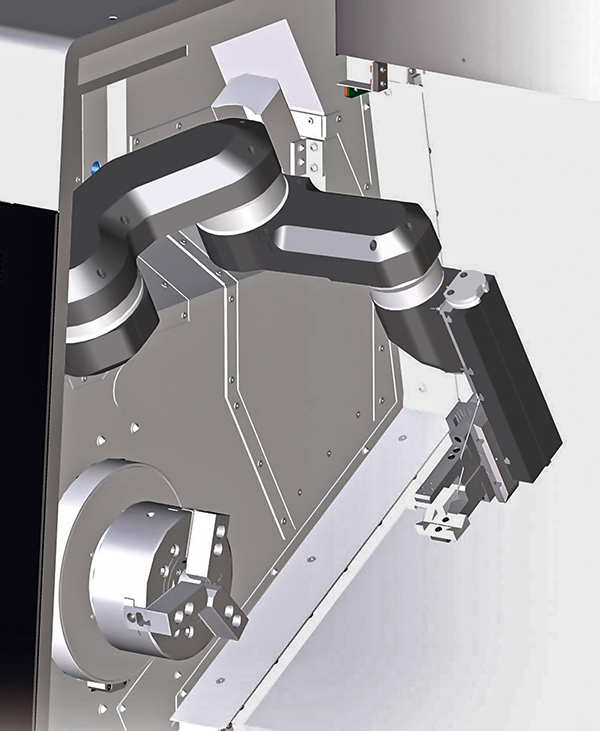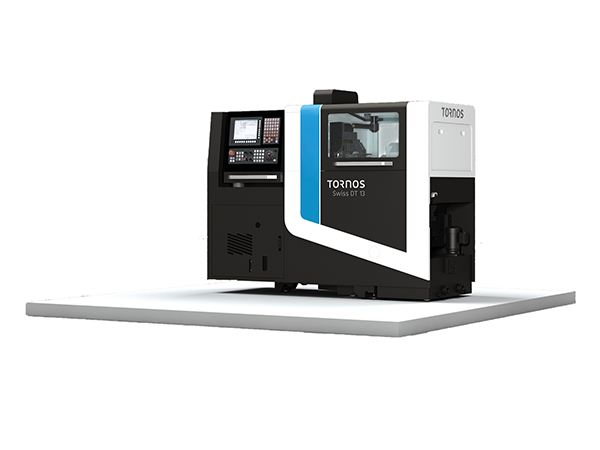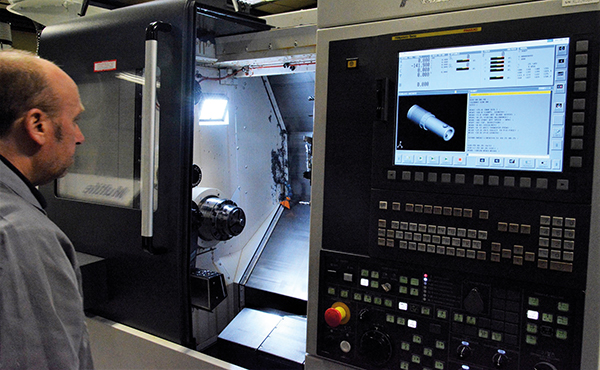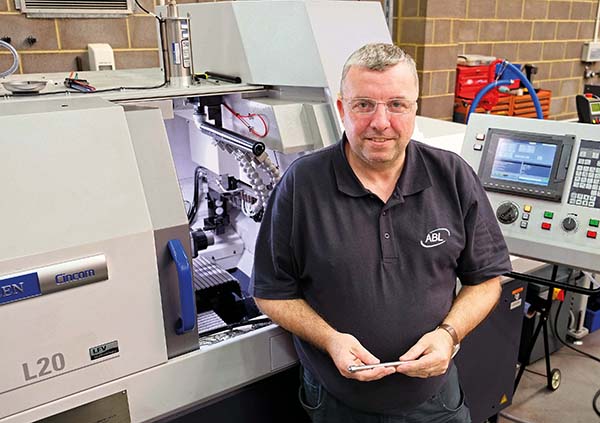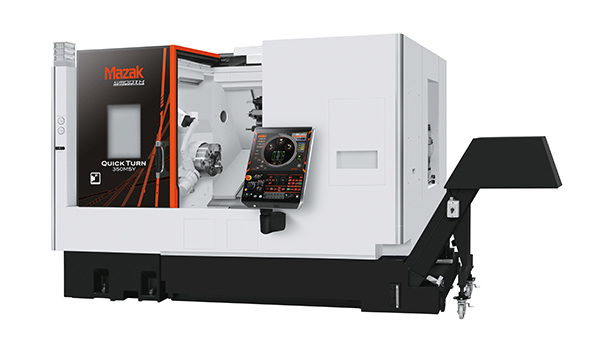
Japanese machine tool manufacturer Okuma has incorporated a robotic arm inside its CNC turning centres for the automated production of shaft- and chuck-type components. The sole UK and Ireland agent for Okuma is NCMT.
One of the first Okuma lathes to benefit from an internal ‘Armroid’ (Arm Robot Intelligent Design) workpiece load/unload system is the LB 3000 EX II, one of which is available for demonstration in NCMT’s Coventry showroom.
Three different end-of-arm effectors are available for performing different tasks. One is for blasting air or coolant within the cutting zone. This effector can be programmed to follow the cutting tool for breaking up stringy swarf or to clean down the whole working area, greatly improving chip management.
A roller end effector provides support under a shaft component during cutting to minimise chatter.
In combination with a workpiece stacker, the third end effector is a two-finger gripper for automatically holding shaft-type workpieces around their circumference for loading and unloading, with total weight capacity being 5 kg. All three end effectors are stored within the machine for automatic exchange by the robot.
It is possible to integrate a longer, more powerful Armroid into a second Okuma turning centre, a Multus B250II multi-tasking lathe. The robot arm handles workpieces up to 10 kg and possesses a fourth type of end effector with a three-jaw gripper for holding billets around their end faces.
Armroid systems are suitable for high mix, small batch work. The extended periods of unattended running release the operator to carry out duties in other parts of the factory. However, the cells are not for the lights-out production of large quantities of the same part due to the limited number of workpieces that the stocker can accommodate.
For further information
www.ncmt.co.uk






